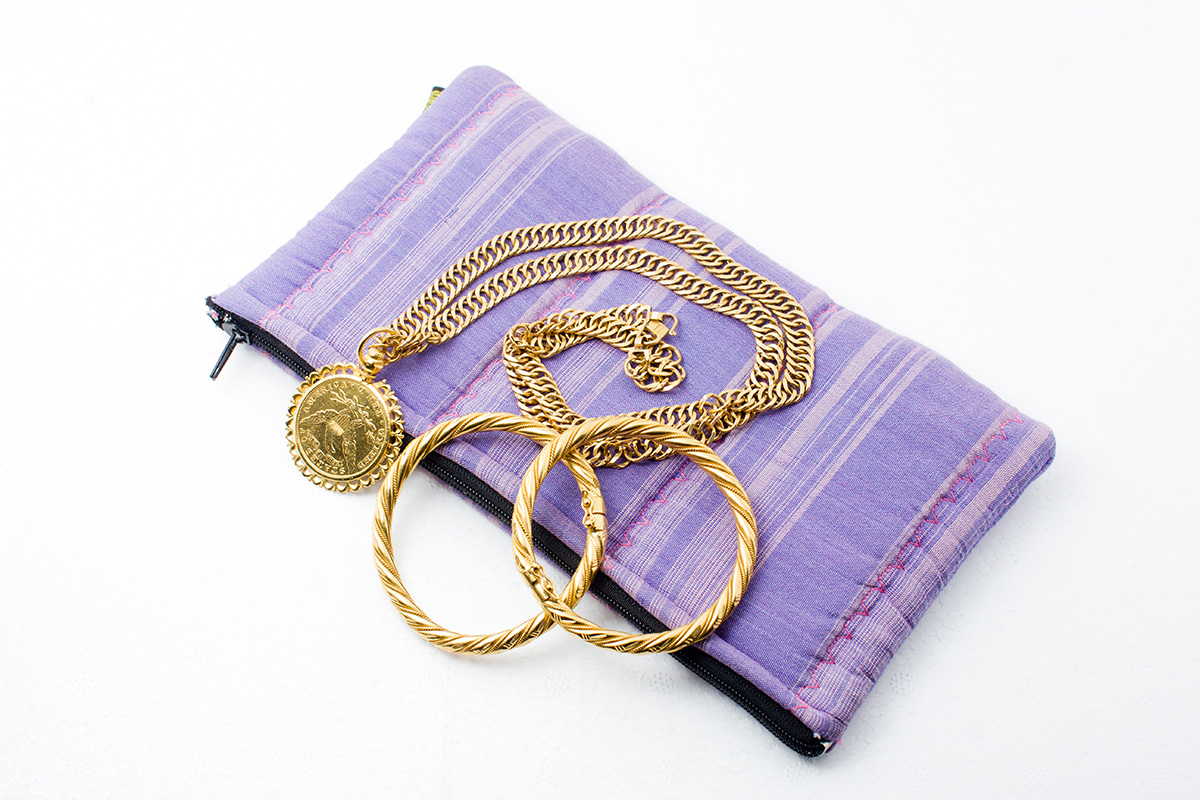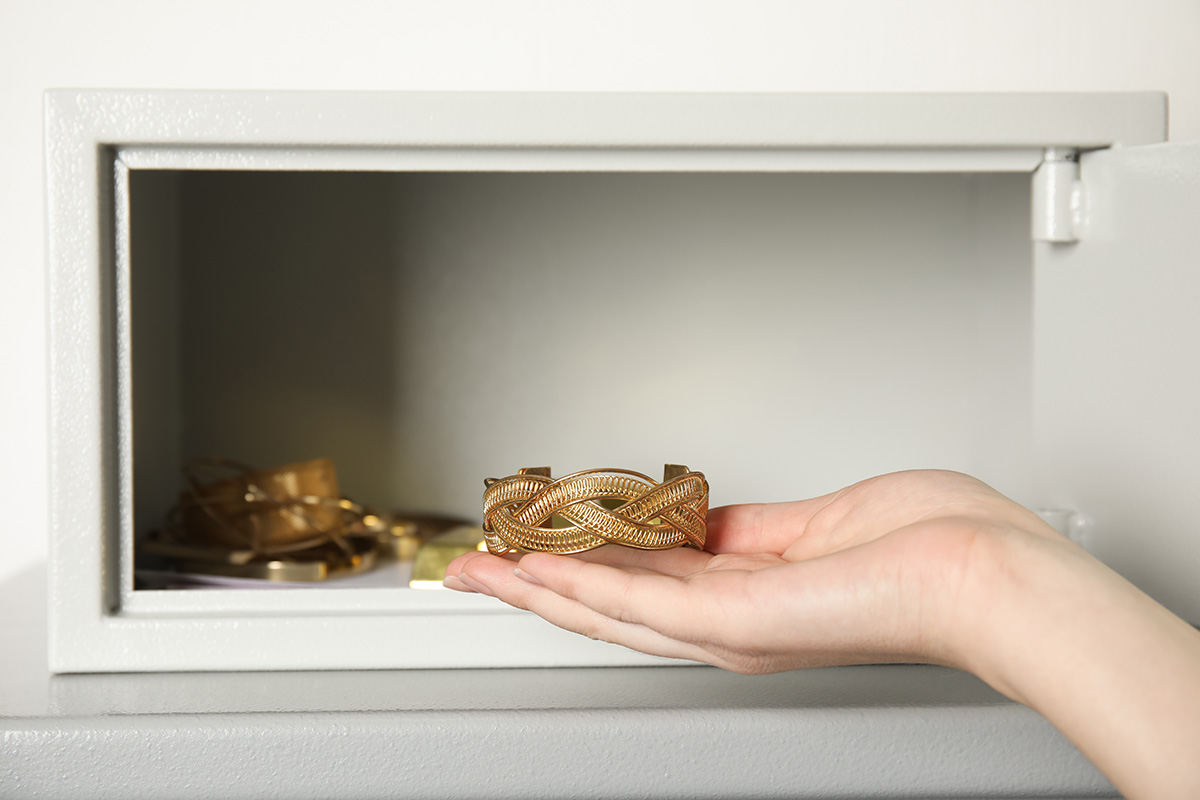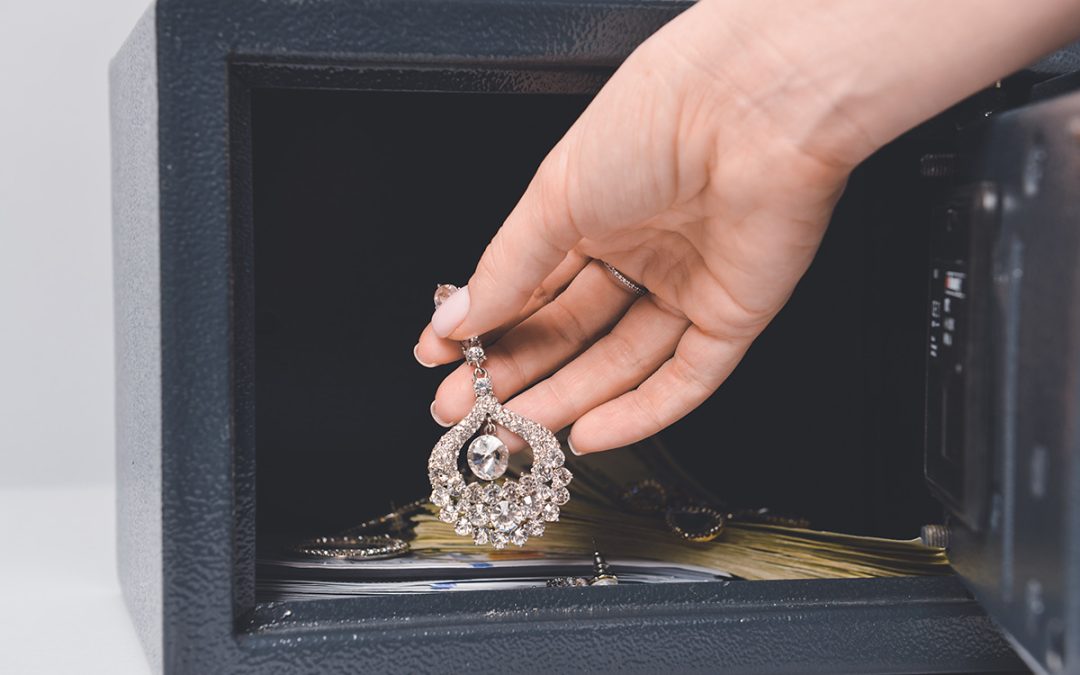How to Keep Jewellery Safe
These days, an increasing number of individuals opt to put their wealth into gold and other precious metals, which inevitably raises questions about how to safeguard their valuable jewellery. Therefore, this article will demonstrate tips for ensuring your jewellery’s safety.
How to keep Jewellery safe From Theft
Theft can pose a significant concern for jewellery owners since jewellery’s small size and lightweight nature make it easy to overlook. Jewellery can “slip away” when the owner is distracted.
Designate a location for your jewellery
The place where you keep jewellery safe should be easily accessible, and the location should be somewhat secluded, usually in a closet in the main bedroom. You can select the place where you can regularly check it. This will allow you to know the condition of your jewellery and maintain it in the best condition.
Store jewellery in a safe
Placing your jewellery in one safe helps protect it from environmental influences that can cause it to lose its original lustre and acts as a strong shield against thieves when they violently dismantle it. The casing is generally made of sturdy materials highly resistant to corrosion, fire, and water.
Be cautious when travelling
When you travel with jewellery, it’s important not to keep jewellery safe in your checked baggage. Instead, make sure to either keep it on your person or stow it in your carry-on bag.
It’s also a good idea to keep jewellery safe in a hard-shell case to prevent damage and tear during the trip. Remember to check your jewellery before you set out to ensure it’s in tip-top shape. And it would be best if you took more measures to mitigate the risk of losing and damaging your jewellery.
When travelling, please be aware of your surroundings, and don’t flaunt your jewellery. Thieves usually target tourists with attractive and expensive jewellery.
Install security system
Installing a home smart security system can be an effective way to keep jewellery safe. For example, you can monitor where you place the jewellery all day through security cameras. In a home burglary, the footage from your camera can provide valuable evidence. Smart motion sensors can detect every movement from the perimeter of the jewellery safe and send the data to the homeowner’s phone.

How to Ensure Your Precious Jewellery From Rusting
It is usual for jewellery to rust, caused by moisture and temperature changes in different environments. Read on to check out more about how you can prevent rusting on your jewellery.
- Put lotion on your jewellery. The cream creates a barrier between your skin and the jewellery, which prevents moisture on the skin from contacting directly with the metal.
- Apply a sealant spray. There are a variety of sealant sprays; some are silicone-based, and some contain many alternative ingredients. Spraying a sealant on your jewellery and letting it dry creates a barrier and protects it from water and oxygen.
- Use clear nail polish. You can also put clear nail polish on jewellery such as bracelets and brooches. And remember to add the polish periodically. While nail polish may fade occasionally, it creates another barrier between your skin, jewellery, and the environment. This process also prevents costume jewellery from oxidising and turning your skin green.
How to Keep Jewellery Safe From Tarnishing
Jewellery is a fantastic way to give your clothing a special touch, but it can be annoying when it becomes dull and tarnished because nobody enjoys seeing their jewellery lose its shine. Here are some easy steps to keep jewellery safe from tarnishing.
- Keep jewellery in a cool, dry area when not using them. Tarnish-prone jewellery is vulnerable to moisture and contaminants. And remember to put them in a drawer or storage box will help keep it lustre.
- Separate each piece of jewellery. Adding dividers to your jewellery storage box or placing pieces in small plastic bags will help prevent scratches that expose the metals beneath plated jewellery.
- Don’t expose your jewellery directly under the sunlight or high temperature. High temperatures can accelerate the speed of tarnishing and oxidation.
- Keep your jewellery away from water and chemicals. For example, cosmetics, hairspray, and perfume may contain water and chemicals. You should wear jewellery after applying your makeup, and remember to clean each piece at the end of the day.
Bonus Tips: Factors to Consider When Choosing the Right Jewellery Safe
Storing your jewellery in a safe can be the most effective way to keep it from theft. When choosing the right jewellery safe, you can consider the following factors.
Lock type
The lock of jewellery safes can be categorised into electronic keypad lock and mechanical combination dial. Each of them has its characteristics and functions.
- Electronic keypad locks: They are user-friendly since they are straightforward to operate. Users save 30 to 60 seconds on average in opening a keypad lock compared to a mechanical combination lock. Furthermore, users can set up the password or code, enhancing your property’s security.
- Mechanical combination dials: While mechanical combination locks may take longer to unlock than keypad locks, they are considered more reliable because their mechanical structure experiences less failure. Electronic keypad locks may not work when they lack power. Mechanical combination dials also have the advantage of lower maintenance fees, which could alleviate the economic burden of a family.

Fire protection
Jewellery often consists of precious metals and gemstones that high temperatures can damage or destroy. Fire protection ensures that your valuable jewellery remains intact in a fire. So look for safes with higher fireproof ability.
Burglary resistance (Tool resistance)
Many high-security safes are labeled for the theft and fire protection they provide. TL ratings refer to the time the safe can withstand sophisticated criminal attacks. Here are the various TL ratings and their meanings:
- RSC (Residential Security Container): The door of RSC safes can resist entry for 5 minutes when attacked against rigorous prying, drilling, punching, chiseling, and tampering attacks by UL technicians.
- TL-15 (Tool Resistant for 15 Minutes): The door of TL-15 safe successfully resisted entry for 15 minutes when attacked with standard hand tools, picking tools, electric tools, grinding points, carbide drills, or pressure-applying devices.
- TL-30 (Tool Resistant for 30 minutes): The door of TL-30 safe successfully resisted entry for 30 minutes when attacked with standard hand tools, picking tools, electric tools, grinding points, carbide drills, pressure applying devices, abrasive cutting wheels, and power saws.
- TL-30×6 (Tool Resistant for 30 minutes, all 6 sides): All six sides of this type of safe successfully resisted entry for 30 minutes when attacked with standard hand tools, picking tools, electric tools, grinding points, carbide drills, pressure-applying devices, abrasive cutting wheels, and power saws.
Size
When deciding to purchase a jewellery safe, it is essential to choose the right size. A locker-sized safe will not only provide more sense of security for the owner, but it will also be able to store more jewellery. You also have to ensure enough space to keep the safe. If the room is insufficient, it is inevitable to bump when moving the safe, which may damage the jewellery in the safe.
Those who want to travel with their jewellery can invest in a portable jewellery safe. Remember that the larger the safe, the more difficult it is to hide it in plain sight.
FAQs
Should I keep jewellery in a jewellery safe?
Yes, you should. The jewellery safes are designed to keep your valuables categorised and safe. In other words, they will ensure your baubles are “dust-free, visible, and safe.” Also, some jewellery safes are fashionable enough to be placed on your closet or bookshelf as beautiful decorations.
Will jewellery tarnish in a jewellery safe?
Yes, it will. The best way to store delicate pieces and fine jewellery is in their original case or soft-lined jewellery safes. However, a high-humidity environment may accelerate the tarnishing process of the jewellery. Also, the jewellery safe is not sealed, so there will be airflow with water, which may cause tarnishing.
What material is typically used to line the interior of a box?
Velvet is made from silk, rayon, or cotton (commonly called velveteen). This material usually has a deep pile to cushion fine jewelry. In the meantime, Flannel (either wool or cotton) is also a good choice.
Can I store it in a wooden safe?
Yes, you definitely can do that. Wooden safe is functional, beautiful, and affordable. Storing valuables or in a wooden safe is an excellent way to categorise them and keep them in good shape. Unlike plastic or metal safes, wooden safes won’t cause chemical reactions with the materials.
Conclusion
Keeping jewellery safe can be easy if you use practical methods. However, if you treat them cursorily, they will give you a “blow” in values. Promoting the installation of security equipment and raising awareness go hand in hand. We hope this article can be helpful to you. Do you have ways to protect your jewellery? Tell us in the comment section below, and please share this article with your family and friends if you find it useful.
For more information on how to keep jewellery safe contact Soteria Safes.
For more information on Safe Deposit Boxes and a Safe Deposit Box near me contact Soteria Safes.
The original version of this article was published in reolink.com


Recent Comments